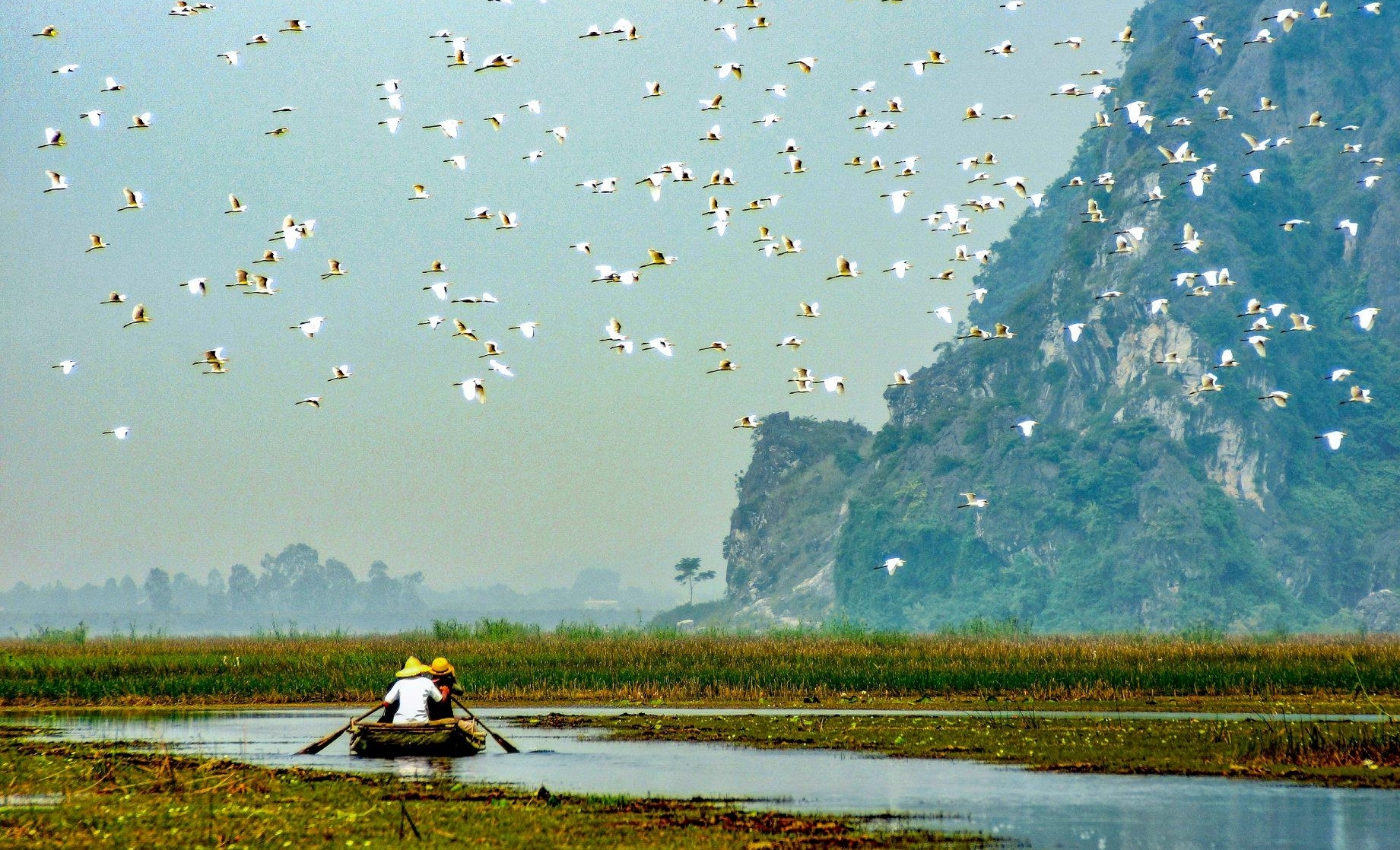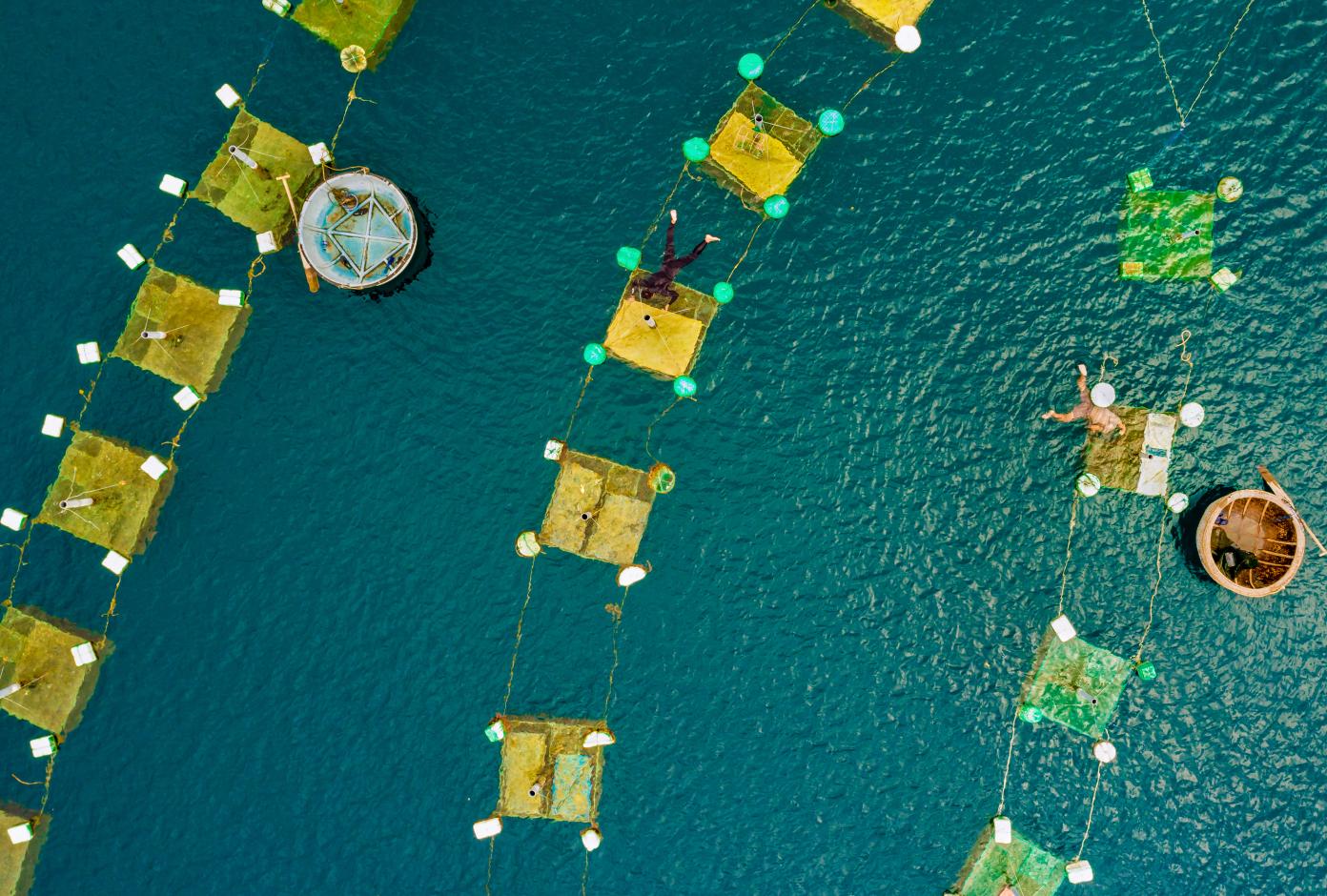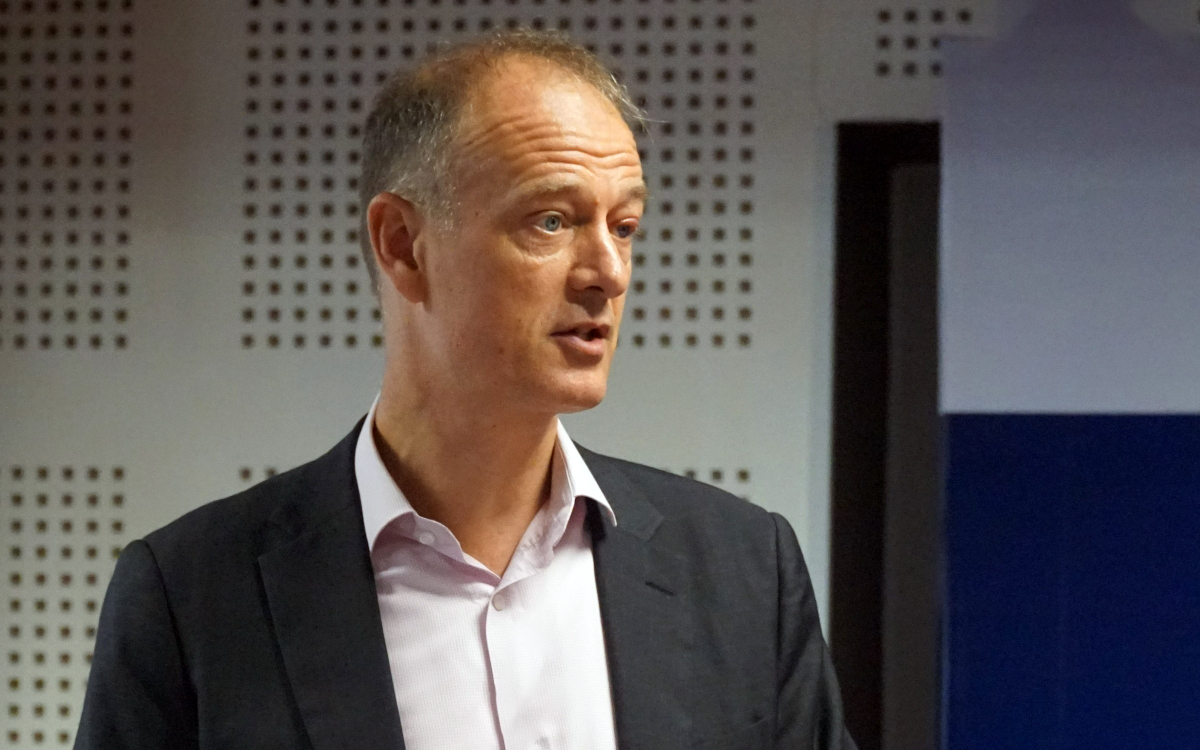June 1, 2025 | 00:08 GMT +7
June 1, 2025 | 00:08 GMT +7
Hotline: 0913.378.918
June 1, 2025 | 00:08 GMT +7
Hotline: 0913.378.918

Vietnam is considered a country with high biodiversity. Photo: UNDP.
From October 4 to 6, the Biodiversity and Ecosystem Services Network (BES-Net) organized a Tripartite Dialogue Conference, gathering delegates from 8 participating countries, including: Cameroon, Colombia, Ethiopia, Kazakhstan, Kenya, Nigeria, Trinidad & Tobago, and Vietnam.
The conference hopes to connect the community of policymakers, scientists, and practitioners to jointly assess and discuss challenges and opportunities and map out some roadmaps for cooperation and replicate initiatives.
This event marks the first time that all countries have benefited from the BES Solutions Fund – which provides catalytic support to implement biodiversity conservation initiatives at the grassroots level – in The framework of the BES-Net Project is held face-to-face.
Payments for Ecosystem Services (PES) have been widely recognized as a successful policy tool for natural resource management in more than 60 countries. These programs have been implemented globally for many ecosystem services, including biodiversity conservation, tourism services, carbon storage, etc.
The total annual payment for PES programs worldwide is US$ 36 billion.
"UNDP is proud to not only promote solutions related to biodiversity but also to help strengthen dialogue between actors who can create change together," said Patrick Haverman, Deputy Resident Representative of UNDP Office in Vietnam.
The Tripartite Dialogue Conference in early October in Hanoi, within the framework of the BES-Net Project, promises to bring participating countries closer to building practical strategies to solve pressing issues in maintaining the sustainability of biodiversity and ecosystems.
Participants will discuss the implementation of the Kunming-Montreal Global Biodiversity Framework based on the latest national, regional, and global practices, including a review of research findings released from the Intergovernmental Science-Policy Platform on Biodiversity and Ecosystem Services (IPBES).

Lobster farming off the coast of Vietnam. Photo: UNDP.
In Phase 1 of the BES-Net Project, Vietnam and Cameron, Ethiopia and Columbia developed a National Ecosystem Assessment (NEA) for the first time. The main results achieved in Phase 1 are the organization of consultation workshops for policymakers, scientists, and practitioners, and policy advocacy activities based on the recommendations of the National Ecosystem Assessment (NEA) report.
In Phase 2, implemented from 2020, BES-Net expands catalytic support activities for biodiversity solutions to advocate for policy changes based on scientific research results. The aim is to enhance the voices and interests of indigenous and local peoples in biodiversity conservation, as well as to carry out direct local and locally-led activities.
Phase 2 is expected to have 5 main results, including developing a Payment for Ecosystem Services Scheme. The location chosen is Tram Chim National Park.
Vietnam is known for its unique and most valuable biodiversity in the world. It is a country with diverse ecosystems from tropical forests, limestone mountains, marine, and coastal ecosystems, with more than 100 bird species and 10% of plant species being endemic species here.
From 2017 to 2022, within the framework of the BES-Net Project, the Ministry of Natural Resources and Environment has coordinated with relevant parties to develop the National Ecosystem Assessment (NEA) Report.
Within the framework of the BES-Net Project in Vietnam, the United Nations Development Program (UNDP) and the Ministry of Natural Resources and Environment have conducted primary research on payments for wetland and marine ecosystem services in Vietnam.
Stakeholders also plan to develop a project for payments for ecosystem services for Tram Chim National Park to promote the mechanism for payments for wetland ecosystem services stipulated in the Law on Environmental Protection 2020 and Decree 08/2022/ND-CP of the Government.
The successful implementation of payments for forest environmental services in recent years has contributed to increasing financial resources for forest protection and development. Practical lessons learned from forest environmental services will create a basis for replicating similar mechanisms for other ecosystems, including marine and wetland environments.
Vietnam has implemented similar PES initiatives for marine and wetland ecosystems but has no plans to pay for related services comprehensively. Some issues, such as the model of co-management of aquatic resources and the development of environmentally friendly aquaculture methods in coastal areas have not been implemented synchronously.

Patrick Haverman, Deputy Resident Representative of UNDP Office in Vietnam. Photo: UNDP.
Dao Xuan Lai, Head of UNDP's Climate Change and Environment Unit in Viet Nam, assessed that programs implementing payments for wetland and marine environmental services operate optimally when the services are clearly defined, well-organized beneficiaries, land and resource management communities with clear property rights, and a solid legal framework.
“Vietnam needs to make practical contributions to implement ambitious biodiversity goals committed in the Global Biodiversity Framework set out at COP15. Efforts do not only come from planners' policies but also from corporations and individuals to help promote the regeneration and restoration of biodiversity and ecosystems in Vietnam," Lai said.
Through the ratification of the Ramsar Convention, the Government has committed to establishing a system of representative wetland-protected areas. To date, Vietnam has 9 wetlands recognized as world Ramsar sites.
They are: Xuan Thuy National Park, Bau Sau Wetland System, Ba Be National Park, Tram Chim National Park, Mui Ca Mau National Park, Con Dao National Park, Lang Sen Wetland Conservation, U Minh Thuong National Park, Van Long Conservation.
Among these, Tram Chim National Park has a unique ecosystem of special importance to surrounding areas and wetland ecosystems. Also, it possesses many groups of rare endemic species and diverse migratory species. Tram Chim's vegetation is mainly seasonally flooded grasslands and patches of Melaleuca forest. Many large populations of water birds are present here, especially in winter, to avoid the cold of the North.
The red-crowned crane, the symbolic species of Tram Chim National Park, is ranked endangered globally and nationally.
BES-Net, an initiative initiated by UNDP, UNEP-WCMC, and UNESCO, with financial support from the Government of the Federal Republic of Germany (through IKI) and Swedbio, focuses on strengthening the capacity of relevant parties through the 3-party dialogue method.
Through the BES Solution Fund, BES-Net provides technical support and seed funding according to IPBES recommendations. The project will be implemented in 18 countries from 2021 to 2028.
Directly attending the Conference organized by UNDP, Nguyen Hoang Minh Hai, Head of the Science and International Cooperation Department at Tram Chim National Park, said that relevant parties have conducted field surveys and are planning the project implementation plan.
According to Hai, Tram Chim National Park will enjoy two benefits if the project is approved. First, officials, employees, and those directly involved in conservation work will have more motivation to carry out their tasks. Through BES-Net, a project implemented globally, Tram Chim National Park will be more widely known.
Second, people living around the buffer zone of Tram Chim National Park will have resources to participate in implementing and maintaining the ecological environment for birds migrating to the park, especially red-crowned cranes.
Tram Chim National Park currently coordinates with Thai partners to implement a red-crowned crane conservation project. Combined with the UNDP program, the park will be more proactive in restoring crane habitat, moving towards "attracting" this rare bird species back to the Dong Thap Muoi area.
Translated by Tuan Huy

(VAN) Several scientists and farmers are experimenting with soil treatment in some key durian-growing regions such as Cai Lay (Tien Giang), Dak Song, Gia Nghia, and Dak R’lap (Dak Nong).
/2025/05/25/4127-3-073637_820.jpg)
(VAN) Thanks to the promotion from an FAO-implemented project, vegetable production in greenhouses in Moc Chau has seen strong development, from 1.5 hectares in 2021 to nearly 50 hectares in 2024.

(VAN) FAO has recently supported USD 140,000 to implement the project 'Risk mitigation human-animal interface risks through disease control initiatives in pig farming.'

(VAN) The People's Committee of Tra Vinh province has approved an adjustment to the investment policy for the Green Hydrogen Plant project, increasing its area to approximately 52.76 hectares.
![Reducing emissions from rice fields: [2] Farmers’ commitment to the soil](https://t.ex-cdn.com/nongnghiepmoitruong.vn/608w/files/news/2025/05/05/dsc08881jpg-nongnghiep-140632.jpg)
(VAN) Clean rice cultivation model in Thuong Tan commune, Bac Tan Uyen district, is assisting local residents in achieving sustainable agriculture by substantially reducing costs, increasing productivity, and protecting the environment.

(VAN) At the conference to disseminate Resolution No. 68, AgriS introduced its digital agricultural ecosystem and reaffirmed its commitment to accompanying the Government in promoting private sector development and sustainable agriculture.

(VAN) 'Blue Ocean - Blue Foods' initiative is designed to restore marine ecosystems and establish sustainable livelihoods for local communities by cultivating a minimum of 1,000 hectares of cottonii seaweed in the first three years.